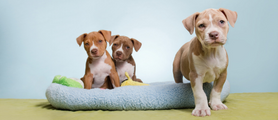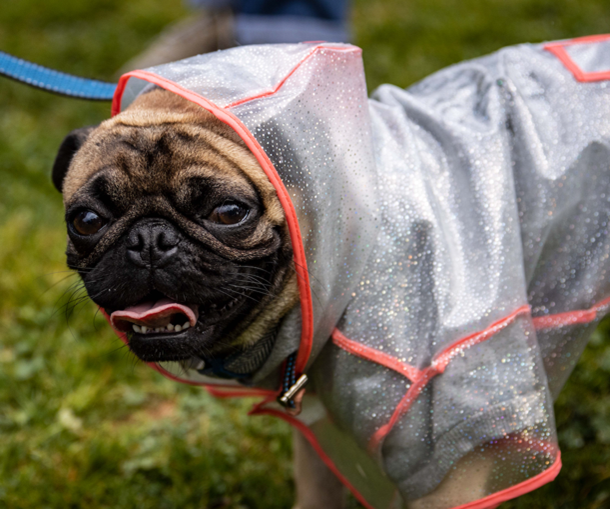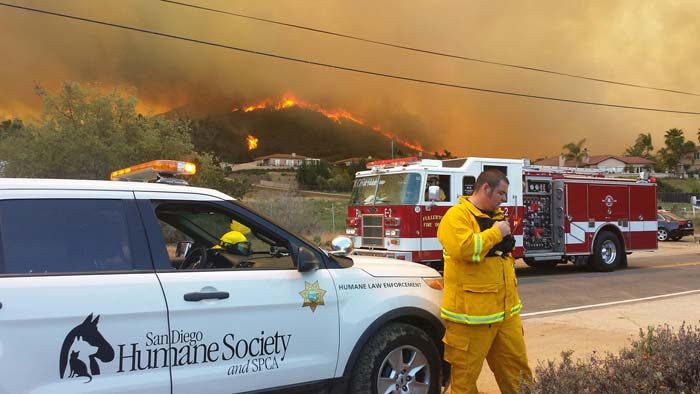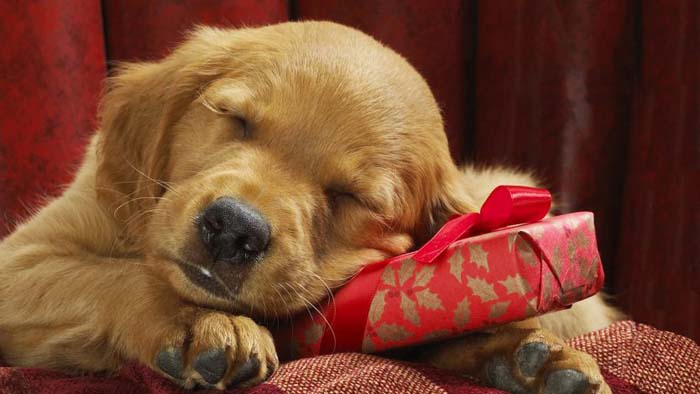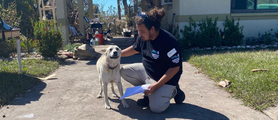Animal People: Andrew Marttila
The Cat Photographer and Orphan Kitten Club's Animal Foster, Secretary and Nursery Coordinator
With a camera lens (and a bevy of allergy medicine), Andrew Marttila explores the complex personalities of cats. Best known for his work as The Cat Photographer, Andrew uses his art to immortalize the wild, wonderful antics of cats and other animals. He also nurtures his deep connection to animals while volunteering full time at the Orphan Kitten Club, a nonprofit organization dedicated to saving the tiniest feline lives. In our Animal People interview, Andrew tells us about his creative muses and their mews.
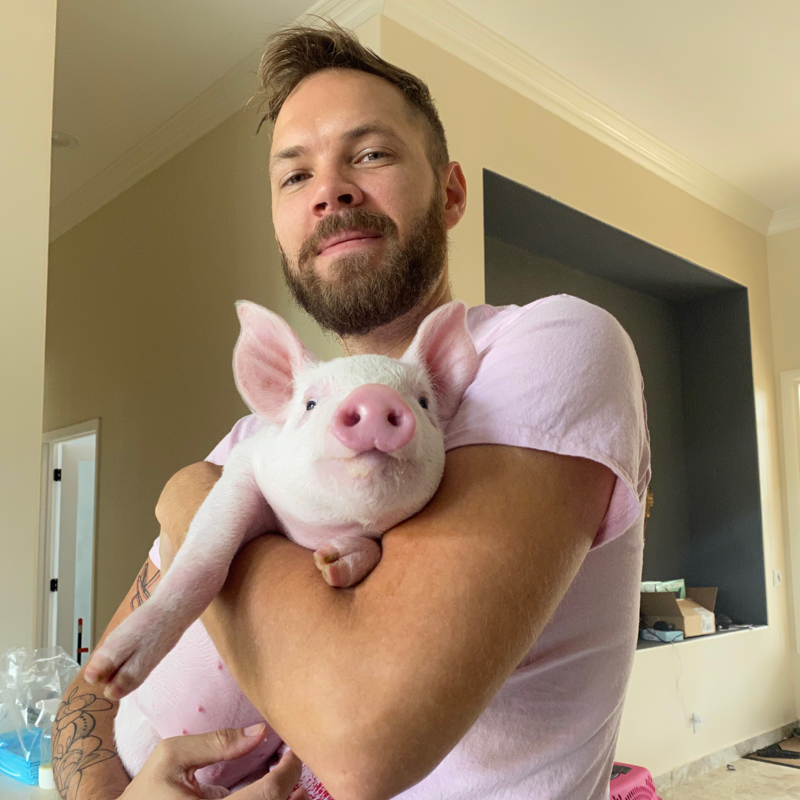
Have animals always been a big part of your life?
I'm very allergic to dogs and cats, horses and pigs — basically any larger animal. I've been allergic since birth, so growing up I had sort of untraditional or atypical family pets. I had some reptiles, a turtle, a chicken, a cockatiel and a hedgehog. Because I'm allergic and have asthma, I had to really be mindful anywhere I went if there was a dog or a cat, because I could have an asthma attack. I went to the hospital many times just from being at a home with a dog or cat.
When did you first fall in love with cats?
It wasn't until I was in my early 20s that I lived in a home with a cat and I was sucking on my inhaler every day. Margot was my grandmother's cat and I loved this cat. I moved into my grandmother's house when she went to a nursing home and I was the cat's caretaker. We had this really strong bond. I think it was the first time I'd spent any real time around a cat and I just didn't know what their personalities were like before this connection. I realized just how special, dynamic and really multifaceted cats can be and fell in love with cats, and this cat specifically.
How have you managed your allergies with your passion for animals?
I endured a couple of years of daily asthma attacks until my body grew comfortable or just learned to cope with this allergen. Margot passed maybe eight years ago, but she was really the gateway to the life I have now. It's been a process to now live with as many animals as I do. I still take allergy meds almost every day, I'm on two different inhalers and we have air filters all over the house. It's truly a labor of love. I am not over my allergies and every time we get a new cat, or a new species of animal, my body has to adjust to whatever allergens they produce.
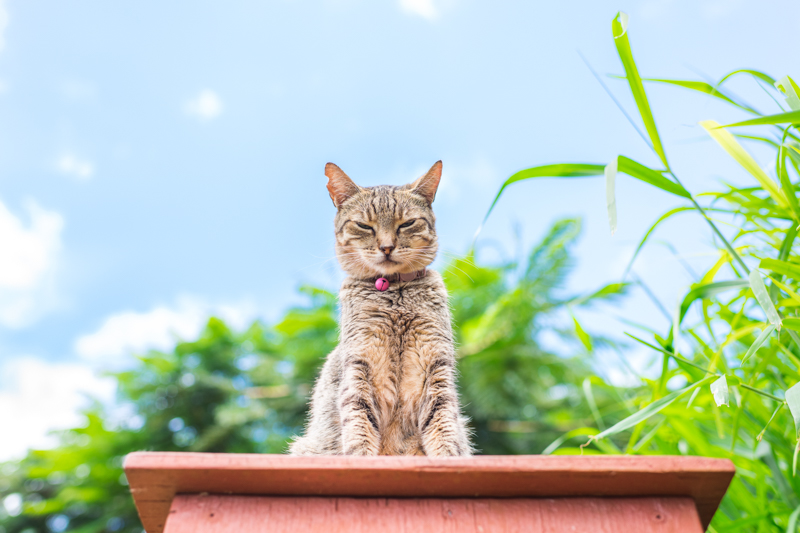
When did you turn your love for animals into a career in photography?
I moved to Philadelphia to go to school and study neuroscience. I'd been dating a girl who had some cats and continued my love for cats, but I was not a photographer at that time. After we broke up, I realized there was a big cat-shaped hole in my heart. I was missing the rapport and connection with cats, so I got my first cat, Haroun. I will be the first to admit I did this the wrong way. Haroun is a Bengal I bought from a breeder. I had heard that Bengals were hypoallergenic and I thought this would be a good match due to my allergies. I went on Petfinder and had an in-person interview for a rescue Bengal, and they were like, "You've never had a Bengal or even a cat. These cats can be crazy; we're not giving this cat to you." But I had my heart set on this breed and so I found a breeder and bought him. Now, I would obviously not endorse this, because I'm a huge proponent of adoption. I just have to speak to my experience and I did the wrong thing.
Shortly after I got Haroun, I just wanted to document him growing up. He was really, really cute as a kitten — as all kittens are — and I just wanted to be able to cherish those memories. My roommate at the time had a nicer camera, so I borrowed it and just started taking photos. That was the beginning of it all. Now, I have a degree in neuroscience and it's not used at all.
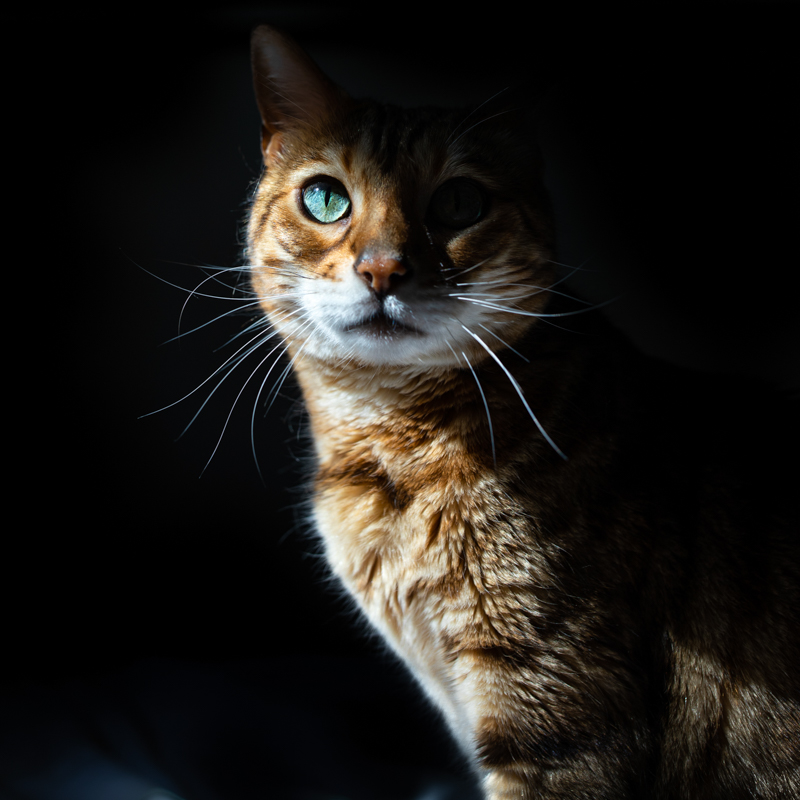
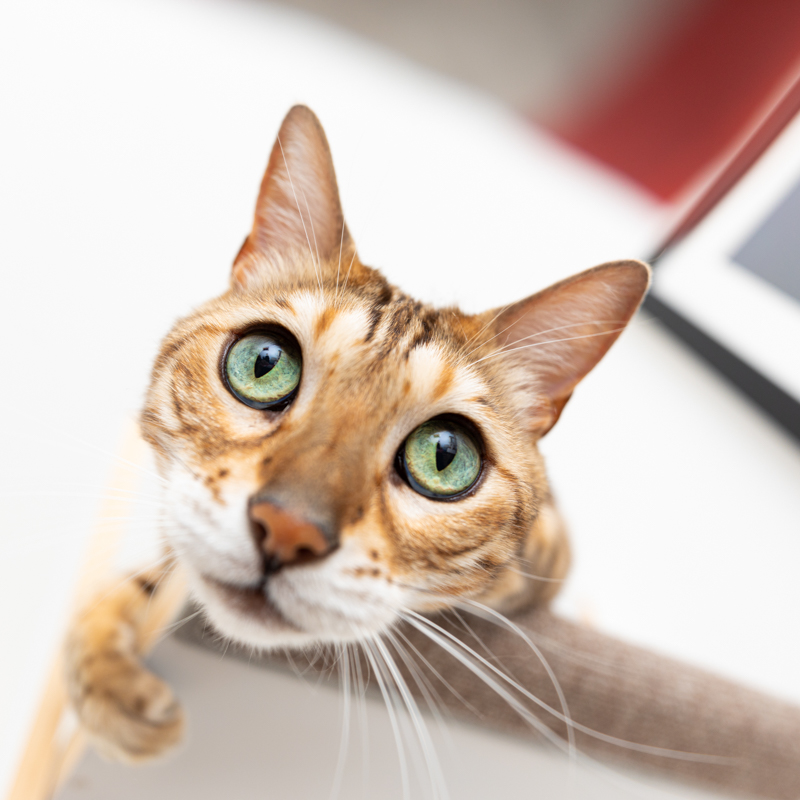
As your first feline, has Haroun become your partner in all things cats?
Haroun is 11 now. He's great and I love him to death, but he's definitely a handful. If you've ever interacted with a Bengal, then you know. They're hybrid cats and they definitely have a wild side to them. Fortunately, he's very sweet, but he requires a lot more maintenance than the other cats do. He is by far the best with all of the foster kittens we have. Haroun adopts all of the kittens, and he's Uncle Haroun to them. He'll groom them and play with them. He kind of tells them how to be a cat, especially with the singletons. If they don't have any other siblings, sometimes single kittens can develop differently — they don't have all the same life skills they would if they had a sibling to correct them and tell them what to do. Haroun steps in like a role model for all of the kittens and he loves when we have foster babies.
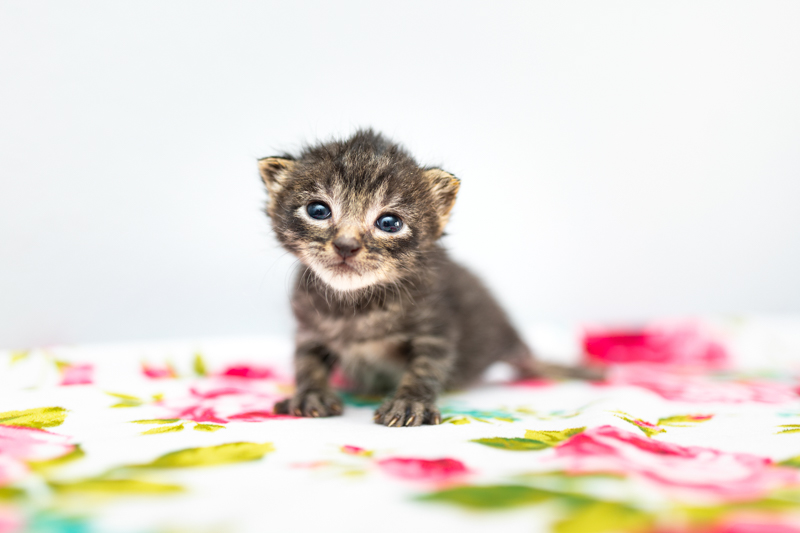
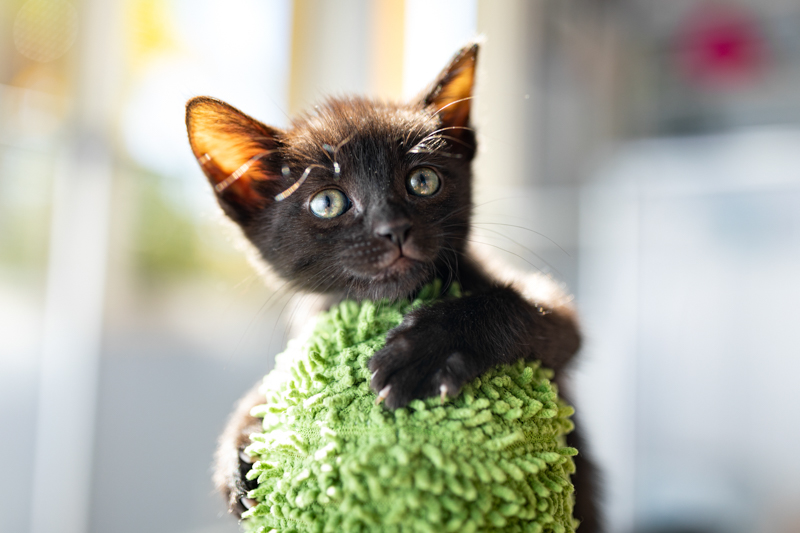
Has photography given you a different perspective or insight on the lives of animals?
I had a gallery very early on in my career that was called "Cat Emotions." It's photos of a lot of different cats really expressing different emotions. Some emotions are transposed from the human perspective, but a lot of cats have such a wide variety of emotional states. They really are thinking, feeling beings, as are all animals. I think a lot of people just see cats as aloof creatures who look down on us — which is true, there definitely are some — but they're much more multi-dimensional. I do a lot of anthropomorphization with my photography. But I also get really low, to the animal's level, and I feel like that gives them a sense of agency that can be lost if you're taking photos from the human perspective. When you get down to what the animal sees, you can kind of envision what life would be like as an animal. It's kind of a unique, unlocked experience that I feel like I'm able to provide when I take photos. It's seeing cats on their level, almost as a peer in a way, and as being totally worthy of love and compassion. In addition to all the other ways that photography can be helpful in getting animals adopted, it just allows you to see them as unique individuals.
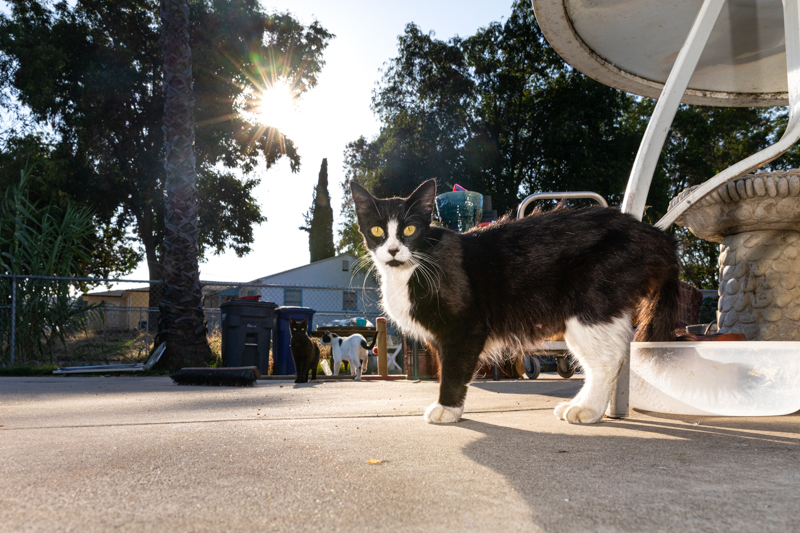
How have cats inspired your different photo series?
I think a lot of my work is born from spending a lot of time around cats. Initially, I used to do a lot of client shoots — people would hire me to take photos of their cats and I would see these themes arise as I was taking photos. I would see a lot of similarities and parallels between cats, and an overarching schematic that I see between all these cats is a lot of emotive photos. I get to see them looking in ways that their owners might not have realized, such as specific glances or personality traits that I see just by virtue of spending time with them at their level. When cats are comfortable, you see a lot of these nuances to their behavior and their personality.
Catnip is a very unique experience for cats. Most of them really love it and it's kind of unlocking something that you've never seen before. If you have given your cats catnip, it's very unlikely that you've taken photos of them with the kind of equipment that I use. Being able to capture these millisecond expressions is a whole new world and it's just a different vision than what the naked eye can see. I started putting piles of catnip in front of my roommate's cat and watching him go wild and see what faces he'd make. He was really the muse for my whole catnip project, because the faces that he ended up making, these weird contortions, were just mind-blowing. I love being able to show other people's cats in that way, to show how dynamic and silly and fun cats are, and that they're not all just aloof and napping somewhere.
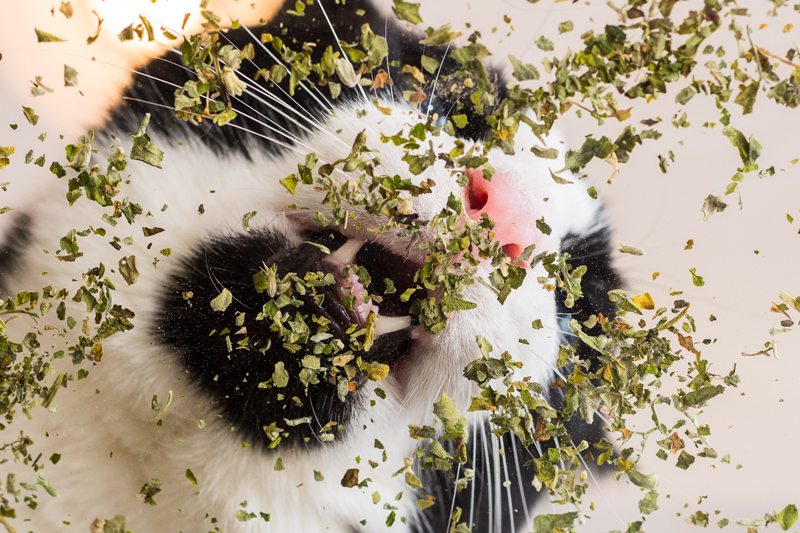
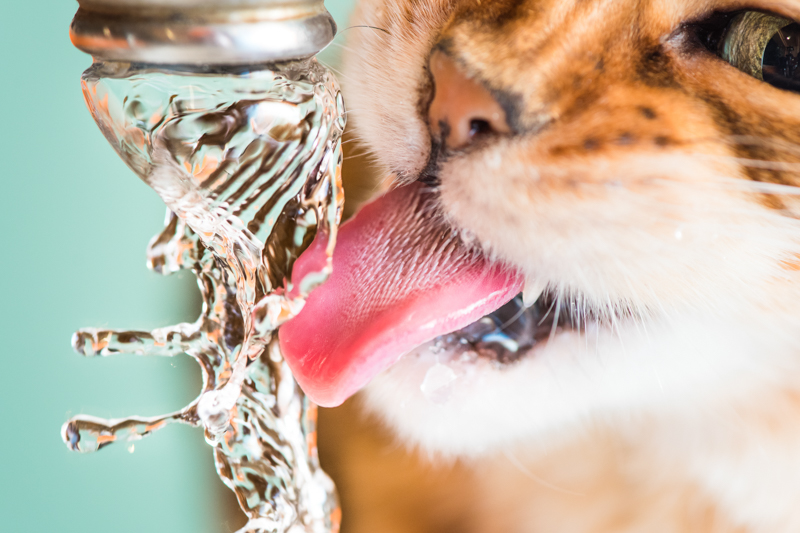
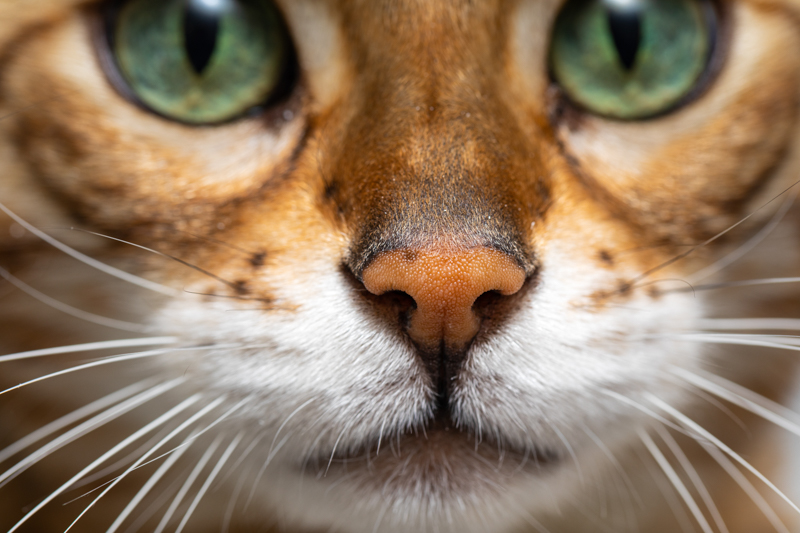
You've published a few books on your work, including How to Take Awesome Photos of Cats. What are your top photography tips for pet parents?
I think as a pet parent you already have a leg up on me if I were to come into your home and try to photograph your animal, because your animal is very comfortable around you. I hate posed photos — it's just not my style. I feel like the best photos I'm able to capture are when the animals are fully comfortable and don't feel like they're being coerced or compelled to do anything. Unlocking the gamut of their personality comes when they just feel like they're themselves and they don't have to act in a certain way. I think as a pet parent, you are given so many more opportunities during the day where your animal's just happy to be there. By nature of being the pet parent you already have one of the most important attributes that I try to get whenever I go to shoot, which is to make sure the animal is fully comfortable with me.
As far as photography goes, use natural light whenever possible and get low. Get on your pet's level and try to take photos from their perspective or even below. It is very boring to look at photos that are just from a human perspective because that's how we see the world anyway. I think photography is all about unlocking different perspectives.
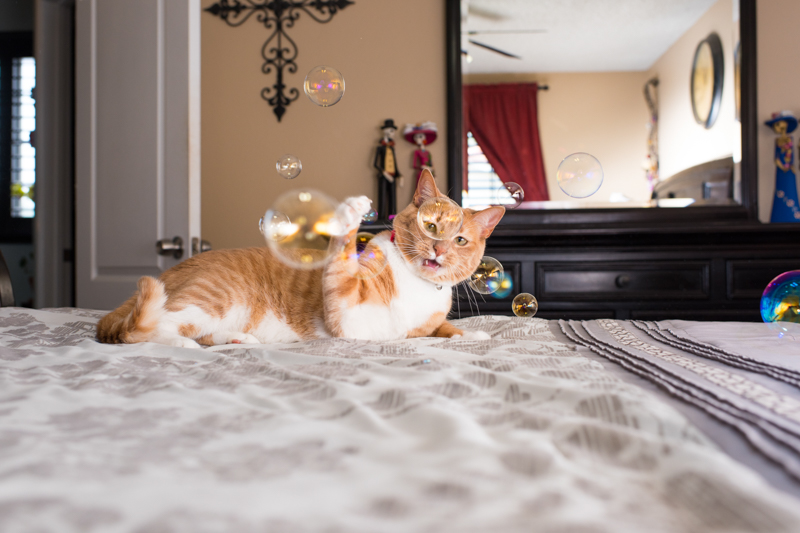
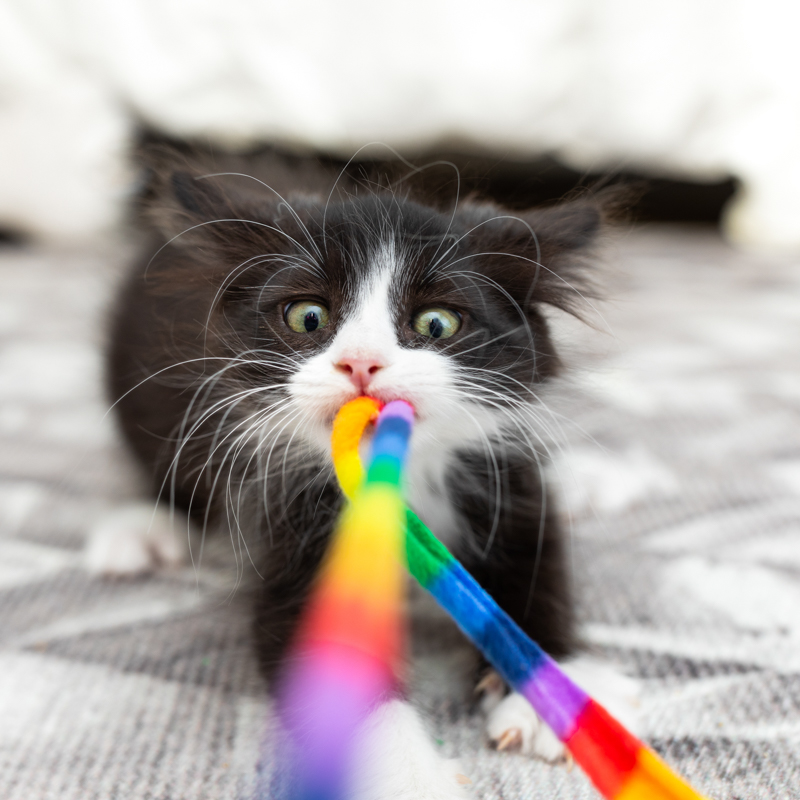
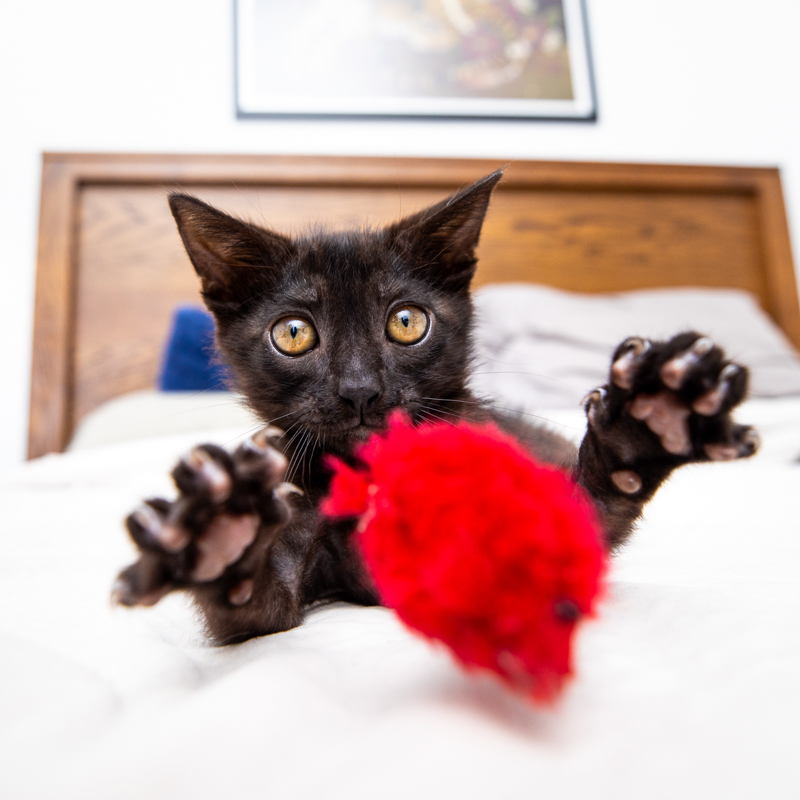
What do your relationships with animals mean to you?
I can't imagine my life without animals at this point. I think the connection that you can form with someone who doesn't speak your language or share the same frames of reference is very meaningful. It's the ability to interact and bond with a being who you can't communicate with, other than just showing them love and compassion. It's very fulfilling and gratifying, especially when we have spicy kittens who hate humans and have learned, by no fault of their own, to grow up to be afraid of humans. We're able to change their lives so dramatically, where one day they're hissing at you and two days later they're purring and wanting to be close to you. I think my life would be so empty without animals. I think anyone that works with animals probably understands what I mean. It gives you such a warm feeling inside when you know that you're helping a being that in some circumstances cannot help themselves. On a daily basis, there's obviously baseline tasks I have to fulfill for animals in our care at Orphan Kitten Club so that they continue to exist. I feel like that's my purpose.
How have animals shaped your path in life?
I am so grateful for the journey that I've been on with animals. I owe so much to all the animals who have been in our care and who I've taken photos of over the years. I feel very honored to be able to do what I do and I'm very grateful that I've had such an instant connection with animals from the time I was very young. I've always loved nature documentaries and watching animals from afar, but I just couldn't really interact with them. I'm just so happy I've reached a point in my life where modern medicine has afforded me the ability to be around animals without dying. I feel like I'm right where I should be. This is definitely my passion and it's such a cool intersection between doing what I love creatively, which is photography, and being able to spend my time with the creatures I love the most.
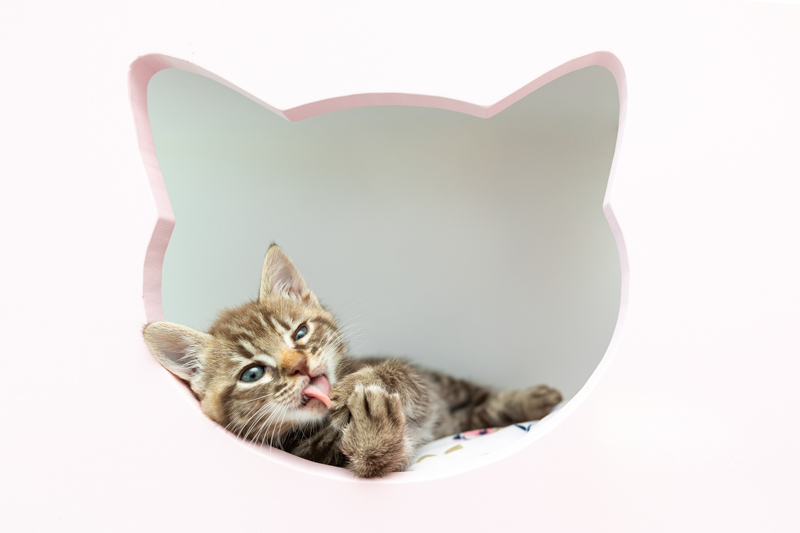
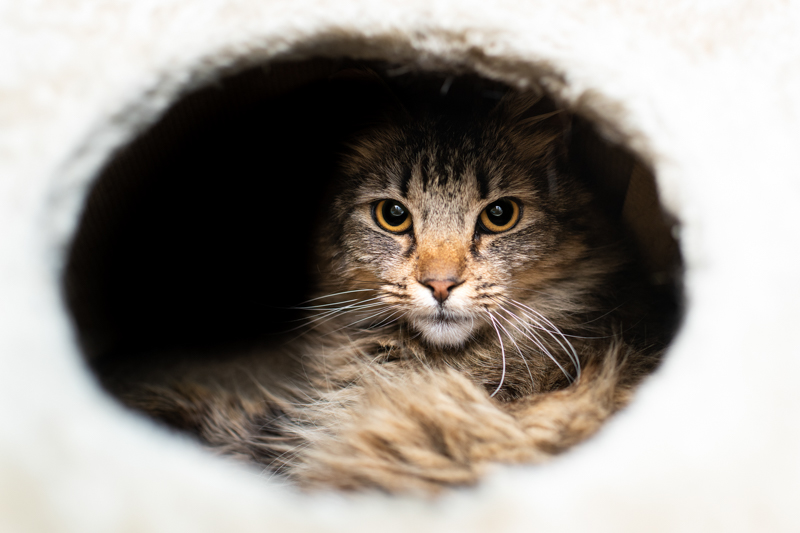
How has fostering animals expanded your relationships with and understanding of animals?
I think people who haven't fostered animals do not understand the importance or the joy that comes from giving someone their new best friend. So many times when we foster animals, people will say, "I can never do this. I'd grow too attached to them." And I think that's a very flawed argument because you're suggesting that you would love someone so much that you would rather see them exist in a shelter or potentially not have a good outcome. So the ability to give love to someone, without the expectation of anything in return, and then freely give that love away is an experience unlike anything else and it's extremely gratifying. Fostering frees up space for us to continue to do what we're doing. We constantly have new kittens, which I'm not mad about!
When kittens and puppies and pigs reach a certain age, we are very much ready to send them on to their forever homes. They require more time investment than we can really give them or give all the animals in our care. It's unfair to us, and unfair to the animal, for us to keep them for longer than they need to be here. I think the feeling of raising and adopting out animals is just so special, and takes a very loving and giving person to be able to do that. Anyone can become that person — it's an experience that grows on you over time when you pour your love and time and effort into another being. It's less daunting and sad whenever you adopt out animals. It's usually such a joyous experience.

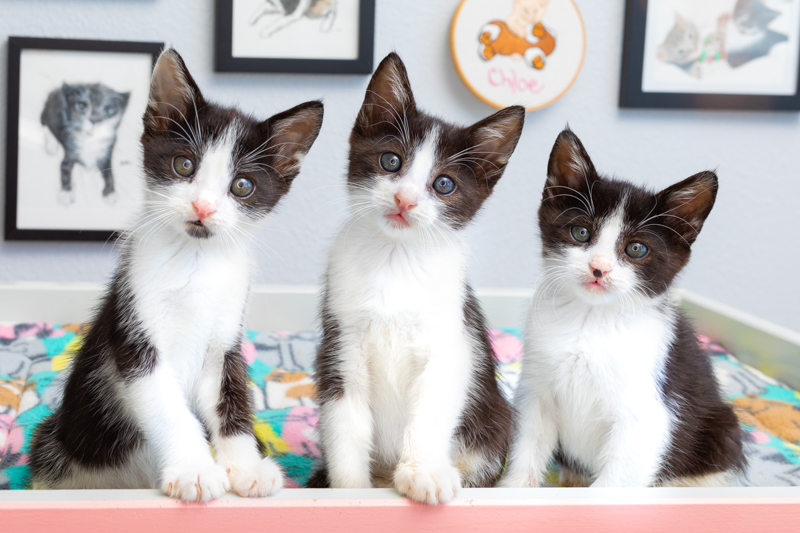
…
See more of Andrew's work at iamthecatphotographer.com.
Learn more about Orphan Kitten Club at orphankittenclub.org.
Published: December 20, 2021


